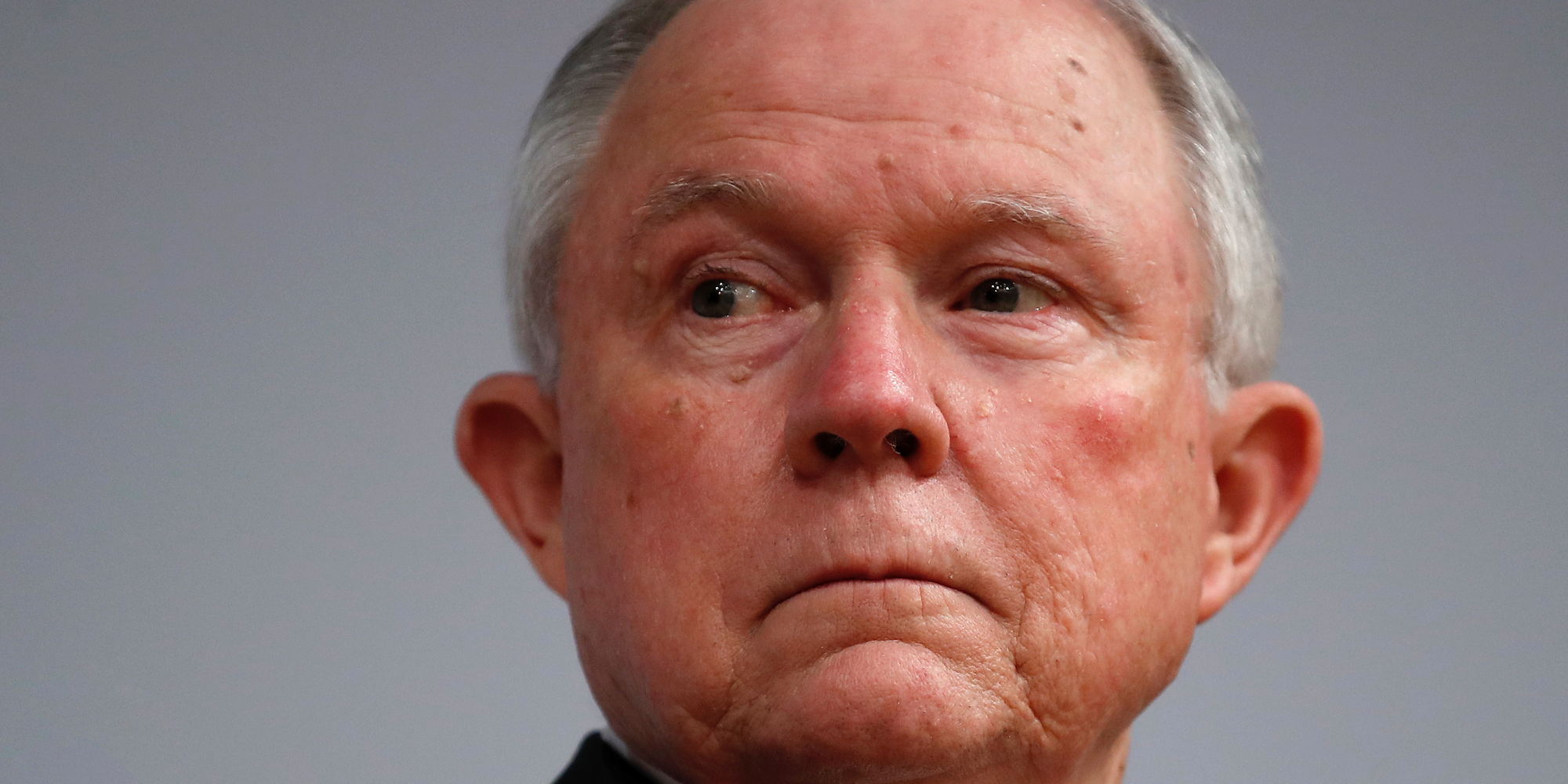- The Department of Justice Office of the Inspector General will review the FBI’s and DOJ’s application to monitor the former Trump campaign aide Carter Page during the election.
- The department’s internal watchdog said it was reviewing the process “in response to requests” from Attorney General Jeff Sessions and congressional lawmakers.
- Sessions recused himself from the Russia investigation and any matters related to Donald Trump’s campaign last year.
- Sessions’ requests came after Republicans on the House Intelligence Committee released a polarizing memo accusing the DOJ and the FBI of anti-Trump bias and corruption.
The Department of Justice’s internal watchdog said Wednesday it would investigate the FBI’s and DOJ’s application for a Foreign Intelligence Surveillance Act warrant to monitor Carter Page, a former member of President Donald Trump’s campaign.
The department’s inspector general’s office announced Wednesday that it made the decision to review the application process “in response to requests from the attorney general and members of Congress.”
The investigation comes after Republicans on the House Intelligence Committee released a polarizing memo in February accusing the DOJ and the FBI of abusing their surveillance authority when they sought the Page warrant.
The move is a significant victory for Trump and his loyalists, many of whom have said the Russia investigation, which is examining whether members of the Trump campaign colluded with Moscow during the 2016 US election, is a biased and politically motivated “witch hunt.”
Sessions was an early and ardent advocate for Trump on the campaign trail. Following reports that he misled lawmakers about his Russia contacts during his confirmation hearing last year, Sessions recused himself from the FBI's Russia investigation and any matters related to the Trump campaign.
In response to questions about whether Sessions' involvement in requesting the OIG review violated the scope of his recusal, a DOJ representative said, "The AG is not recused from personnel and misconduct issues related to the management of the department."
The inspector general, Michael Horowitz, is a holdover from the previous administration who has been lauded for his reputation in Washington.
"Horowitz will call this an effort to be 'transparent,' but the response from the public will be the same - that it is a response to political pressure," said Frank Montoya Jr., a former FBI special agent who retired in 2016 and worked closely with the former FBI Deputy Director Andrew McCabe.
Patrick Cotter, a former federal prosecutor who has worked with members of the special counsel Robert Mueller's team, said Horowitz may not have had much say in the matter, given Sessions' authority.
"If the AG orders you to open an investigation, and you are the DOJ IG, you may have no choice," he said.
The longtime former federal prosecutor Jeffrey Cramer echoed that view.
"I think his hands were tied," he said of Horowitz. "He had to open an investigation just to quell the yelling."
Inspector general probes Christopher Steele and the Trump-Russia dossier

The FBI obtained the first FISA warrant targeting Page in October 2016. Five officials subsequently signed off on applications to continue surveilling Page after they all separately found probable cause to do so.
The OIG said Wednesday that it would review "information that was known to the DOJ and the FBI at the time the applications were filed from or about an alleged FBI confidential source."
It added: "The OIG will review the DOJ's and FBI's relationship and communications with the alleged source as they relate to the FISC applications."
The source in question is the former British spy Christopher Steele, the author of the so-called Steele dossier, an explosive collection of memos alleging collusion between the Trump campaign and Russia.
The Republican memo raised questions about the dossier, saying it "formed an essential part" of the Page FISA application. However, according to a Democratic rebuttal memo released shortly after the Republican document that cited directly from the FISA application, claims from the dossier made up just a fraction of the evidence the DOJ submitted to the FISA court when seeking to surveil Page.
Moreover, the Republican memo indicated that Steele was not a trustworthy source given the political funding behind his research.
Legal experts and former intelligence officials, however, have argued that who funded the dossier doesn't matter as much as the veracity of its claims. And while much of it remains unverified, the FBI, which has used it as a "road map" in the Russia investigation, has been able to independently corroborate several of Steele's findings.
The OIG's assertion that it would review the FBI's and DOJ's "relationship and communications" with Steele as they relate to the Page FISA application indicates the inspector general will examine the circumstances surrounding Steele's termination as a source and the FBI's reliance on his findings even after he was let go.
The FBI made clear to the court that Steele was not let go as a source because the information he provided was inaccurate but because he made "unauthorized disclosures" to the media in September 2016, according to the Democratic memo. After Steele told the FBI of his contacts with members of the media in late October of that year, the agency terminated him as a source.
Though the FBI had paid Steele in the past for his other work, the bureau did not compensate him for his Russia-related research. According to the FBI's records and testimony the House Intelligence Committee obtained, though the FBI initially considered paying Steele for the Russia dossier, the transaction was later canceled and never made, the Democratic memo said.

